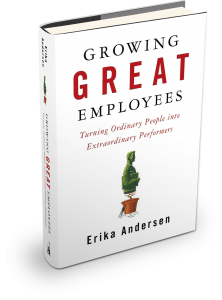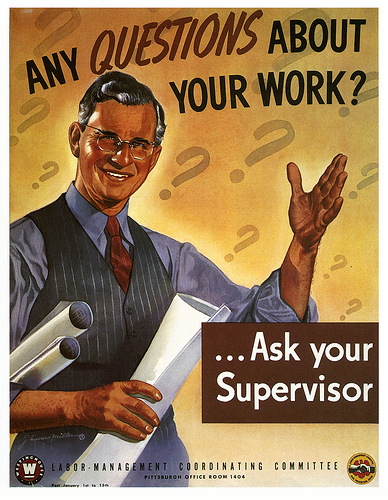My May business read was “Growing Great Employees” by Erika Andersen.
Now you may remember my comments about a previous book I read back in December called “Good Boss, Bad Boss”, so you already know that I never planned to be a boss, but fell into this role when I decided to start my own business … so I wouldn’t have a boss. Well, now I am the boss. And the learning continues …
It is difficult to review a book as helpful or not until I’ve had the opportunity to put the items I’ve learned into practice. Further, to really really have a fair assessment of whether this book was helpful, we should probably need to ask my staff to comment back in a couple of months, since they are the only true judges here.
Until that entertaining day arrives, I can report that this book gave me much to think about, want to practice and study.
No pressure, but here is a direct quote that gave me night sweats right from the beginning chapter:
“Your employees are, like you and I, flawed and hopeful human beings whose success is at least partly dependent on your skill as a manager; human being who will thrive with skillful and consistent attention and wither without it.”
Yikes. If I was ever motivated to keep reading, that would be it.
The author continues:
“Kind of like plants. (Thus the gardening metaphor you’ll notice throughout the book, from which I intend to wring every last drop by the end of the final chapter.)
And she does. Ad nauseum. And I have a thing about overworked metaphors. She keeps running back and forth over this one, but I bravely read on … and on. {You have been warned}.
Just to get the things I didn’t like about this book out of the way, the only other issue I had was where she role-played with made-up boss-to-employee scenerios. They were so forced … and honestly, a little uncomfortable to read. It’s difficult to explain, but there are no conversations that are that linear or endings that perfectly wrapped-up.
Okay, enough of the critisicisms, here are the bits and pieces that I found really helpful, which far out weighed the negative. These are in no particular order and taken directly from my own notes of things I’d like to go back and read, explore, study learn and test on my staff in the near future (heads up to my team!). You may read this book and take different notes — there’s a lot in here and I may be focusing on different areas where I need help/advice more than your own takeaways, but here it goes:
- Uncover where I can offer opportunities for my team to learn, advance, create professional connections and where I can mentor;
- Listening well (and sincerely) is the key to creating an environment that suports employee growth;
- Managing our “self-talk” (a way of making sure what we say to ourselves inside our head is always supportive and of the results we are trying to achieve – no more negative thinking). When we change our self-talk, we can have a significant impact on how we feel and in-turn, on how we behave;
- Create job descriptions that focus primarily on responsibilities and results;
- Learn how to ‘scenario-base interview’ (detailed in Chapter 3) to get better information from candidates of their skills, knowledge, and core competencies leading to better, more informed hiring decisions;
- Getting an employee started on the right path by answering critical questions such as the “who, how, and what” about my agency, for example: “Who do I need to know?”; “How do things get done around here?”; “What is expected of me?”;
- I believe this anyway, but a helpful reminder was this mantra (as the author referred to as the ‘coach’s mind-set’): “Believe in your employee’s potential and want to help them succeed”;
- Learn the “Social Style™ Model” (Chapter 6) which is a simple, practical tool for understanding the differences between my employees (from one another, but also from my style) so that I can work with their strengths to bring out their best potential and help them grow;
- Teach myself how to make clear agreements with each employee to ensure we continue to grow as a team;
- Learn how to better provide corrective feedback;
- Ask my employees ‘curiosity-based questions’ to check their levels of interest and motivation in certain areas;
- Stick with continuing my learning path towards being the best manager/employer I can be. To quote the author, “Mastery arises when you’re passionate about something, you have the capacity to excel in that area, and excelling in that area will give you some reward that’s deeply important to you.”





